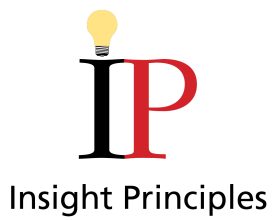by pressablealiassolutionscom
Share
Welcome to Insights and Implications!
Isn’t agreement a good thing? Sure, but if you listen for agreement you might miss what is being said. Read on to learn more about the value of listening without your own ideas on your mind.
Happy Listening!
All of us at Insight Principles
I Agree WithYou
If you’re talking with someone and hear the words, “I agree with you,” you might feel like the listener hears you. You might welcome those words, as they mean the listener understands. You’re on the same page. They get it. Right?
Sometimes.
Recently, we were helping a leadership team solve a particularly gnarly issue. The team split into small groups to work on the problem. As I often do, I listened to each of the small group discussions. In one particular group – let’s call them Group A – I heard the phrase, “I agree with you,” many times. Interestingly, Group A’s report-out did not uncover a single new idea, while the other groups shared many novel insights. What was all that agreeing about in Group A?
As it turns out, listening for agreement is different from listening for understanding.
To illustrate the difference, picture a funnel. A funnel has a wide opening at one end, and narrows to a small opening at the other. Listening for agreement is like holding the funnel upside down. You take in a small bit of what is being said, measure it against what you think, and make a determination. Using what you already know as your measuring stick, you either disagree (and refute the speaker) or you agree (and remain in conversation). But what are you agreeing with? Your primary attention is on your memory and body of knowledge – not on what the speaker is actually sharing. In other words, you are mostly listening to (and agreeing with) yourself.
When you listen to understand, on the other hand, the large end of the funnel is rightside up. You listen with a wide open aperture. Your intent is to learn what the speaker thinks, not what you think. You are actually listening.
While it may appear that people want you to agree, they usually want to be heard and understood. Hearing and understanding nourishes relationships, builds trust, and encourages collaboration.
It is no wonder that the late Stephen Covey chose “Seek first to understand” as one of the 7 Habits of Highly Effective People. Covey wrote that most of the time you listen from your own frame of reference, or what he refers to as “autobiographically”.
In other words,- you listen through your own thinking.
Every parent and spouse is familiar with the phenomenon of selective listening, also known as ’hear-what-you-want-to-hear’. When you hear-what-you-want-to-hear, you hear what you think. When you are thinking about whether or not you agree or disagree, your own thinking predominates. And it drowns out what the speaker is actually saying.
When you listen to understand or to learn, however, the channel is more open. There is less of you in the mix. You can take in more of the message, and hear the depth and breadth of what the speaker is actually trying to portray..
There is an added benefit to this open channel listening. Without your current thinking in the way, you are free to wander into new territory. This new territory is ripe for insight. Some of your business and life problems can be solved using only your experience, body of knowledge, and memory, but many more of these problems are so new and complex that solutions lay only in the not-yet-known. Insight territory.
Listening to understand or to learn instead of to agree sparks insight and new ideas. It pushes you into the realm of the not-yet-known You never know what new ideas may emerge.
Give it a try sometime.
Sandy Krot
